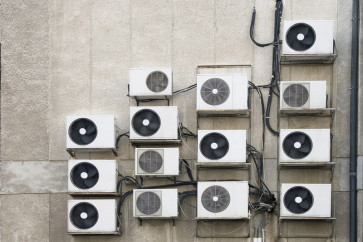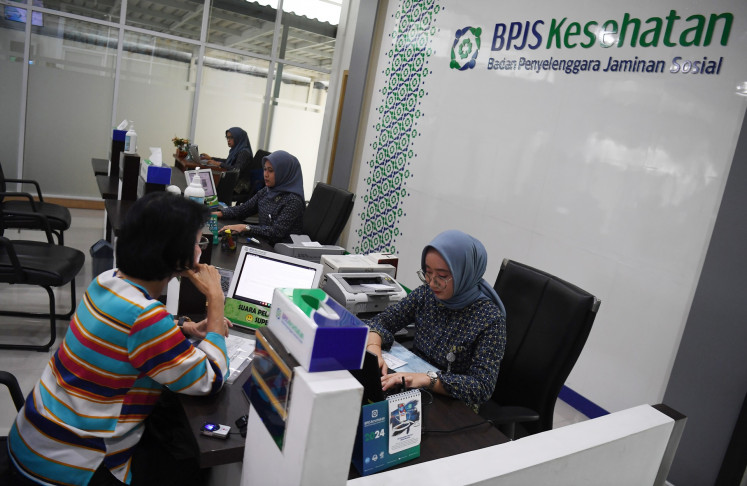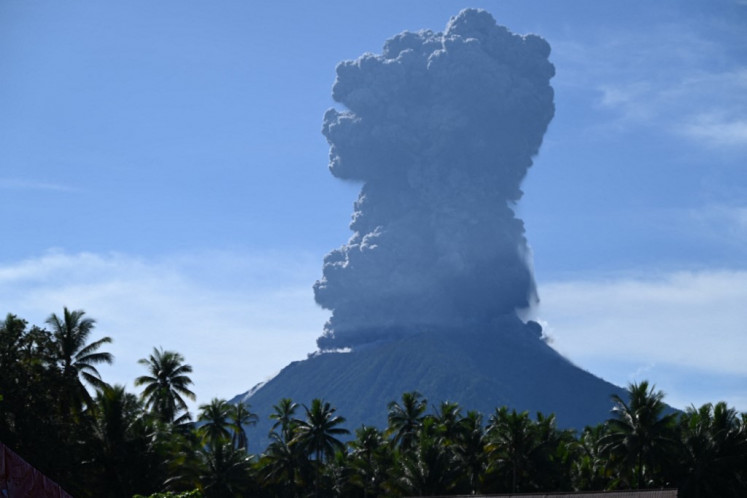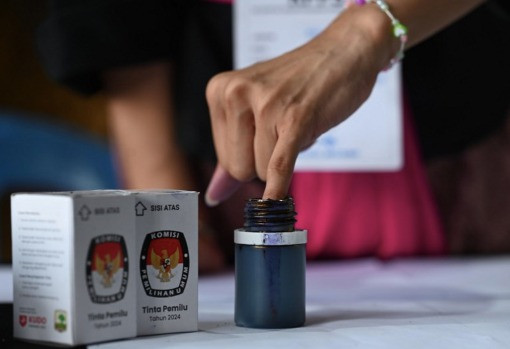Protecting people with weak immune systems from COVID-19
New research has found that the effectiveness of a third vaccine dose is lower in patients with immunodeficiency disorders.
Change Size
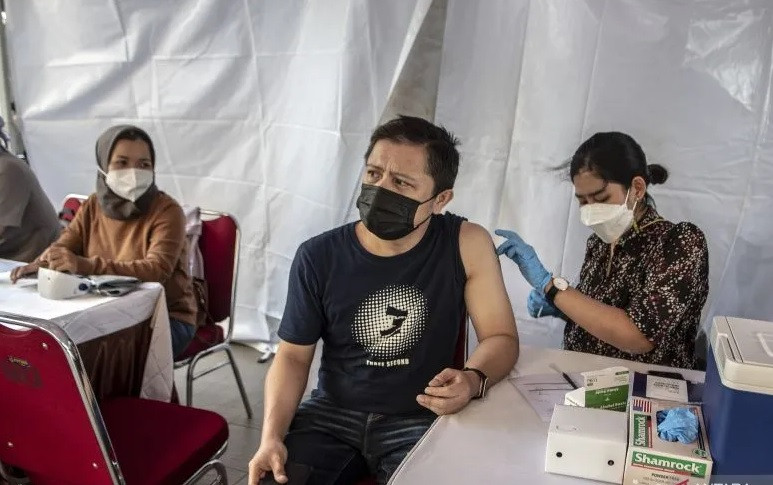
D
isruptions in the immune system can lead to an increase in the direct burden of COVID-19, with studies showing the efficacy of vaccines against the disease appears to decline in individuals with low immunity. Experts, therefore, suggest people with a weakened immune system should have more options available to them to prevent SARS-CoV-2 infection.
The government’s rollout of the second COVID-19 booster dose for the elderly (aged 60 and older) is therefore good news. This measure is a necessary preventive measure against a new coronavirus infection wave driven by XBB, the highly contagious Omicron subvariant.
The policy is important also because of the potential rise in human mobility ahead of Christmas and the New Year, which may lead to a new virus spike. A second booster shot is currently limited to two priority groups – health workers and senior citizens.
A second booster dose is certainly essential because older adults remain at the highest risk of COVID-19 illness, hospitalization and death due to their weakened immune systems. Not only the elderly, other vulnerable groups also have inadequate immune responses (immunodeficient) to infectious diseases.
According to the United States' Centers for Disease Control and Prevention (CDC), the immunocompromised includes cancer patients who receive active treatment both for solid tumors and blood cancer, people who are undergoing organ transplants and consume immunosuppressant drugs, individuals with moderate or severe primary immunodeficiency, people with advanced HIV disease and patients who receive active treatment with high-dose corticosteroids or other medications that weaken the immune system.
While the government speeds up the second booster shots for the elderly, primary vaccinations and first booster doses remain high on the agenda, as in some areas, the coverage of primary vaccinations and first booster shots is still below 70 percent.
One question remains: Is the booster dose strategy sufficient for the Omicron variant, especially in immunocompromised patients? Such a concern makes sense because new research finds out that the effectiveness of a third vaccine dose is lower in patients with immunodeficiency disorders. It means they may still be vulnerable to SARS-CoV-2 infections despite booster doses.
Monoclonal antibodies are currently increasingly used to protect vaccinated people against breakthrough COVID-19 infection.
Indonesian Society of Allergy and Immunology (PERALMUNI) chairwoman Iris Rengganis said there were different immune system responses to COVID-19 vaccines between healthy populations (immunocompetent) and patient groups who are vulnerable to infections. In healthy populations, the effectiveness of the COVID-19 vaccine to prevent hospitalization is relatively stable over time, but in vulnerable groups, the vaccine offers a lower protection level.
“Vulnerable groups have higher risks of severe illness from COVID-19. Vaccines are often less effective on these individuals because of their immune system disruptions,” said Iris in a webinar jointly held by PERALMUNI and AstraZeneca on Nov. 24.
Additional protection for vulnerable groups is indeed crucial, given that they are at a high risk of getting COVID-19 multiple times. To make matters worse, continuous replication of the coronavirus can lead to virus mutations.
As explained by the Health Ministry last month, the Omicron variant BA.5 is no longer a dominant strain in Indonesia. The new subvariants XBB and BQ.1 now account for 90 percent of new COVID-19 cases in Indonesia. Meanwhile, the BA.5 variant is now responsible for only about 10 percent of cases.
Unlike the previous variants, XBB and BQ.1 are more transmissible and can escape people’s antibody immune response created by COVID-19 vaccines, reports say. With their potential to infect more people, the ministry says it is closely monitoring the development of COVID-19 cases to anticipate a spike in infections caused by the new subvariants.
A number of studies cited in the webinar revealed how immune deficiency impacts the effectiveness of COVID-19 vaccines. At seven months after the vaccination, the effectiveness of the vaccine in immunocompromised populations drops to below 70 percent, one of the studies found. Even after getting the third vaccine dose, immune system protection received by immunocompromised patients against infections still cannot rival that obtained by healthy populations.
As a result, people with weakened immune systems are three times as likely to be hospitalized and have a higher risk of needing more intensive treatment in an intensive care unit (ICU). At the same time, the risk of death from COVID-19 infections in the immunocompromised doubles.
“Currently, health protocols and booster vaccinations are the avant-gardes that hopefully can protect individuals from COVID-19. But for vulnerable groups, because of their condition, they need other modalities or options, including passive immunization therapy with a monoclonal antibody, to prevent the infection,” said Iris, a specialist in allergies and immunity disorders.
To get protection from COVID-19, people need vaccines that can actively stimulate the immune system to produce antibodies against the virus. For people with weakened immune systems, monoclonal antibodies (mAbs)—laboratory-manufactured proteins injected into their veins—can act just like the natural antibodies in the human immune system, giving them special protection against the virus.
Anti-SARS-CoV-2 mAbs, which target the virus’ spike protein, have clinical benefits as a pre-exposure prophylaxis (PrEP) or prevention of COVID-19 infection, studies show.
As new variants of SARS-CoV-2 continuously emerge, it is not time for the government to relax its protection against the virus. Continuing virus prevention with a business-as-usual approach may be dangerous because, for people with certain conditions, vaccines may not provide optimal protection.
There could be a rising burden of COVID-19 unless more potent protective measures are taken, including for people with disrupted immune systems. As more aggressive, highly transmissible new variants emerge, long-term intervention will save the lives of individuals with sub-optimal vaccine responses.
***
The author is a staff writer at The Jakarta Post.

